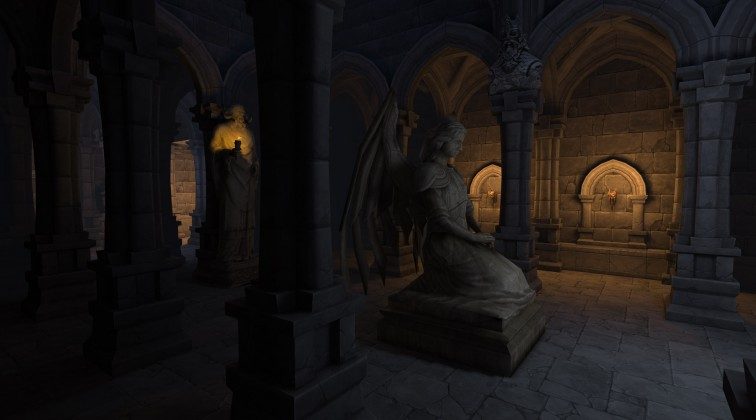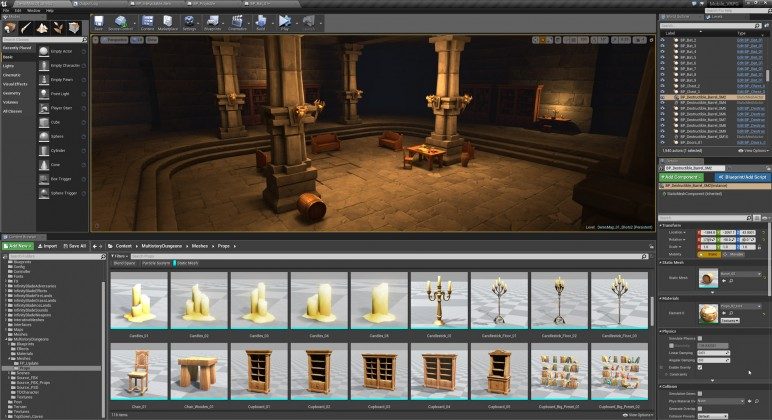Epic Games’ Kim Libreri today took to the stage at Google’s I/O conference to announce Unreal Engine support for the newly announced Daydream Android VR platform, what’s more is that it’s available right now.
Epic Games have been a constant in VR technology adoption since the Oculus Rift Kickstarter, with the company’s Unreal Engine 4 consistently one of the first to deliver integration for a myriad virtual reality technologies. Rarely does a major announcement happen in the VR space without a member of the Epic team ready to announce an initiative related to it.
Google’s recent announcement that they’re doubling down on virtual reality in Android with their new VR platform and ecosystem Daydream it seems is no exception to that rule. Epic Games’ CTO Kim Libreri spoke at Google’s I/O conference to say that support for Android Daydream is already present in the latest Unreal Engine 4 preview build and that developers can get access to that right now.
Epic Technical Director, Nick Whiting also presented a technical demonstration video which highlights both the power that Unreal Engine in combination with newly optimised Android N OS and the new Daydream controller. The former has been highlighted previously and is certainly extremely promising, but this is the first Daydream VR specific demo we’ve seen.
The demo application is one the Epic team put together specifically for this showcase and highlights the visual fidelity possible with Daydream on Android. Whiting says of Daydream “What it does is take some of the high-end VR features that we’ve seen in desktop VR applications and bring them to Android so that we can really up the level of fidelity in our mobile VR experiences.” The video also quite rightly highlights that the reason mobile VR is so promising is that truly untethered VR experiences can be enjoyed. Although we’re still worried about the lack of positional head tracking solutions and that affect on comfort in more active mobile VR experiences.
This video is also the most that has been seen publicly of the Daydream controller in action. Actions like pointing and clicking to teleport and manipulation of objects are all present in this demonstration and, despite us having concerns that this new device at times look like a mini-Wii mote, a 3 degrees of freedom IMU powered device, it does seem to do the job accurately and responsively.
Of course we’ll have to reserve judgement until we’ve got our hands on it ourselves, hopefully soon as Road to VR is on the ground at Google I/O in San Francisco this week.












